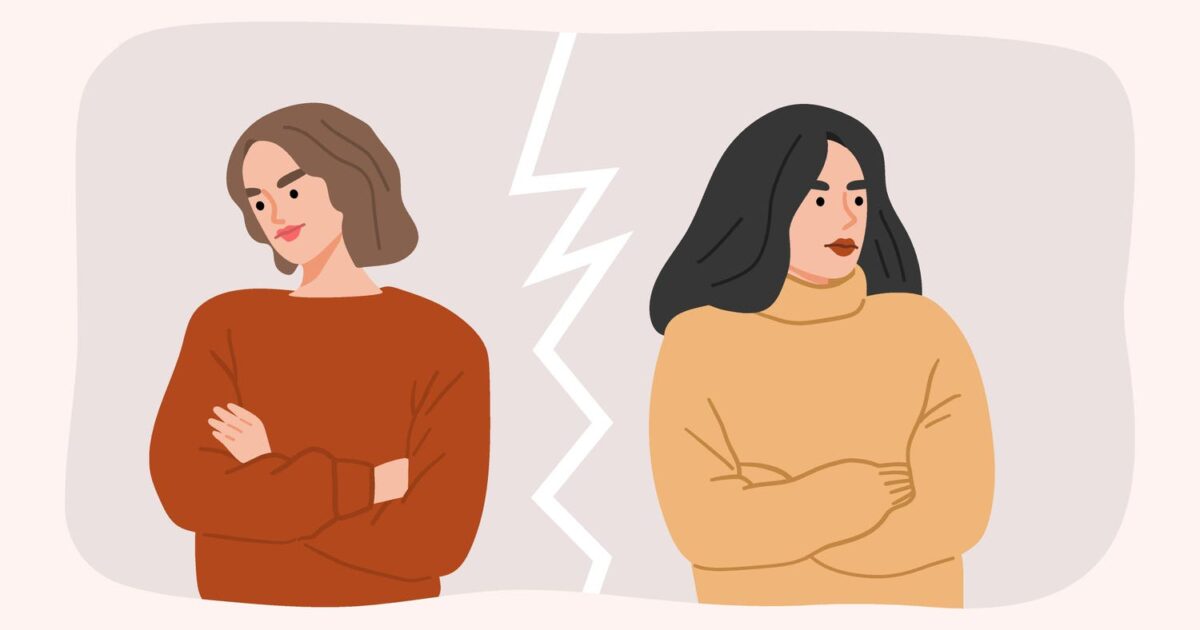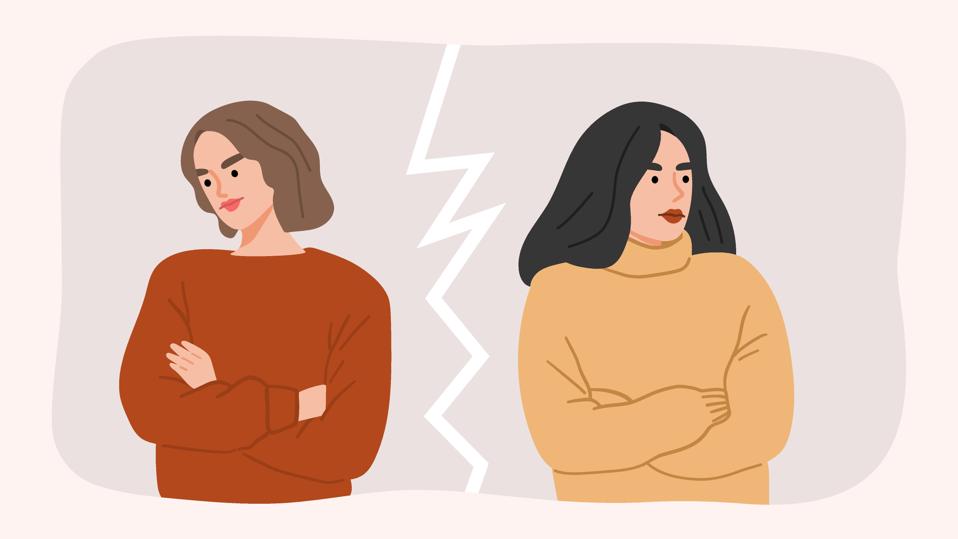3 Friendship Red Flags You Shouldn’t Ignore, By A Psychologist

Some friendships don’t fall apart — they slowly wear you down. Here’s how to spot the red flags … More
Being socially connected and having flourishing friendships can deeply enhance the quality of your life. The right friendships can uplift you and help you get through the toughest times. However, not all friendships will have the same impact on you.
Some can even feel emotionally uneven, where you feel like you give more than you receive, or you walk away from interactions feeling depleted rather than nourished.
It can be confusing to identify when something feels off in many friendships, especially when there are meaningful shared memories and no obvious conflict. But just because a friendship isn’t openly damaging doesn’t mean it’s healthy. Unhealthy friendships may not break you all at once, but they do wear you down over time.
When you’re constantly overextending yourself or suppressing your needs to maintain peace with someone, you’re essentially sacrificing yourself for the sake of the friendship.
Just as you may have learned to look out for red flags in romantic relationships, you must also learn to recognize them in friendships. The people closest to you shape your sense of safety and self-worth, whether you realize it or not.
So, it’s important to be able to discern when a friendship isn’t healthy for you and when to walk away.
Here are three friendship red flags you shouldn’t ignore.
1. They Only Reach Out When They Need Something
There are times in life when you need help, and leaning on your friends in times of need is a natural part of any close relationship.
However, if someone only contacts you when they need a favor or some support, emotional or otherwise, and rarely checks in on you outside of that, it may be time to have a closer look at the dynamic. This pattern, over time, can leave you feeling more like a lifeline than a friend. You may begin to question whether they value you or just what you provide.
A 2019 study published in the Journal of Research on Adolescence explored how helping behavior and friendship are connected.
The researchers studied over 950 adolescents across 41 classrooms and tracked both friendship and help networks over time to see how often people helped one another, whether that help was mutual or one-sided and how these patterns influenced the start and maintenance of friendships.
Researchers found that mutual help, where both people give and receive support, played a key role in the maintenance of long-term friendships. On the other hand, one-sided help was less stable and more transactional.
The findings also revealed that help often happens outside of friendship, suggesting that just because someone seeks your help doesn’t necessarily mean they value you as a close friend.
This sheds light on the fact that if someone only contacts you when they need something, it may not always be a sign of connection. Healthy friendships aren’t built on constant one-sided favor. They’re meant to offer presence and care that flow both ways.
Knowing this can help you protect your time, energy and even your sense of self in the long run.
2. They Flood You With Their Feelings But Never Ask About Yours
If you feel like you’re always the one taking in your friend’s emotional pain, listening to their problems and comforting them through every crisis, but they rarely ask how you’re doing, you may be caught in a one-sided friendship.
At first, this can seem like closeness or vulnerability between you.
But over time, it can leave you feeling exhausted. Notice if these intense conversations happen on their terms, without your consent and if they leave you feeling drained and emotionally overloaded.
Research published in Communication Quarterly explored how emotionally difficult disclosures affect not just the speaker but the listener.
Researchers examined 82 real-life conversations between close relational partners (friends, family or romantic partners) to study this.
Participants were asked to recall situations where they listened to someone share a distressing experience and report how they responded, how much time they spent listening and how responsible they felt for the other person’s emotions.
Researchers found that the more responsibility listeners felt and the more time they spent listening, the more emotional distress they experienced themselves.
Additionally, listeners who responded by validating the other person rather than offering advice reported even higher levels of distress.
What this finding suggests is that while emotional support is important, being repeatedly exposed to unfiltered emotional unloading without reciprocity can be emotionally taxing.
In a friendship, when one person is constantly venting, especially when it’s habitual and lacking mutual care, it can erode the listener’s emotional well-being and create an imbalanced dynamic.
So, if you constantly find yourself carrying the other person’s emotional weight, it’s okay to pause and reflect on whether your friend holds space for you equally. Friendship isn’t just about being there for the other person. It’s equally about feeling seen, heard and cared for in return.
3. Everything Circles Back To Their Struggle
If every time you share something, your friend pivots to how much harder their life is or they consistently try to one-up your experience, you may be caught in a conversational pattern where their struggles constantly take center stage.
This subtly dismisses your own emotions and needs.
A 2022 study published in Anxiety, Stress, & Coping explored the impact of emotional invalidation and investigated how perceiving one’s social environment as emotionally dismissive or unsupportive affected people’s moment-to-moment emotional states and daily stress levels.
Researchers asked participants multiple times a day to report how they felt, who they were with and how they interpreted stressful events.
They found that those who felt more emotionally invalidated tended to experience higher levels of negative emotion, especially in social situations with others whom they were not very close to. They also reported more frequent and intense stressors throughout the day.
Emotional invalidation had a strong dampening effect on positive emotions, even when people weren’t in distress.
This research highlights that feeling chronically dismissed, especially in close relationships, can erode overall emotional well-being over time.
When a friend consistently redirects the focus to their struggles, it can lead to long-term emotional fatigue and disconnection, even when there might not be any obvious signs of conflict.
This makes it important to notice if you’re consistently being overshadowed in your friendships. Your feelings deserve just as much space as theirs. The idea is not to strive for a perfect balance all the time, but to show up for each other in ways that feel emotionally safe and reciprocated throughout your connection.
Healthy friendships aren’t just defined by fun moments or long histories but by how supported and understood you feel within them. The right friendship will provide both people the space to express themselves, be heard and lean on each other without the fear of being dismissed or depleted.
If you constantly feel like you’re overextending, questioning your worth or walking on eggshells, it may be time to reevaluate the relationship.
Building healthy friendships starts with self-awareness and clear boundaries, and continues with surrounding yourself with people who genuinely care for you, not just when they need something, but because they deeply value you and your needs as a person.
Are your friendships draining or nourishing? Take this science-backed test to find out how connected you feel with those around you: Social Connectedness Scale

